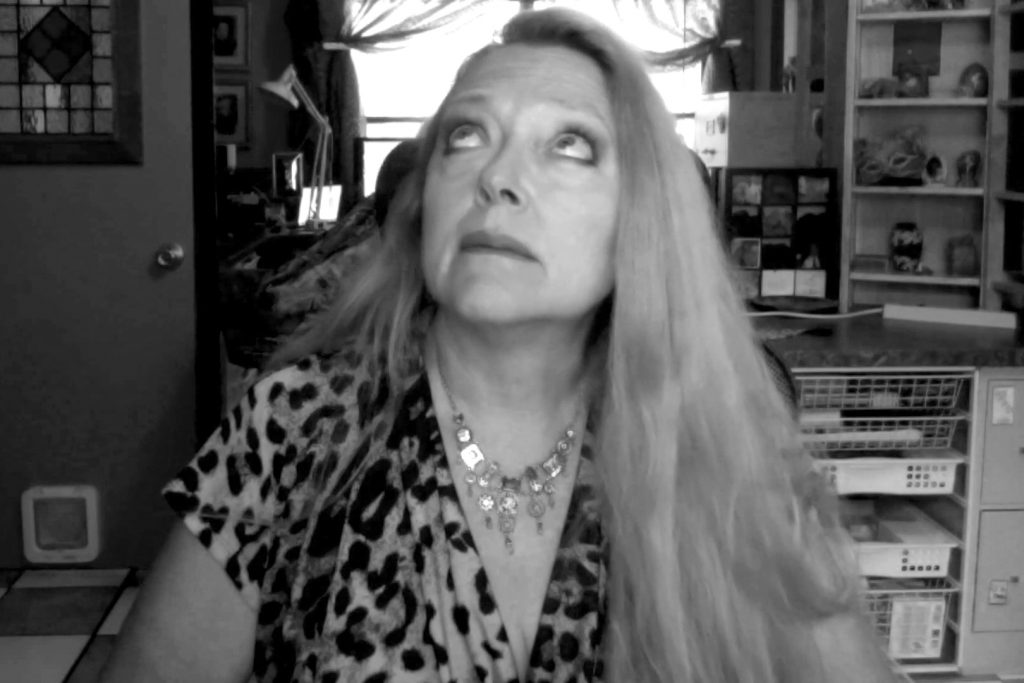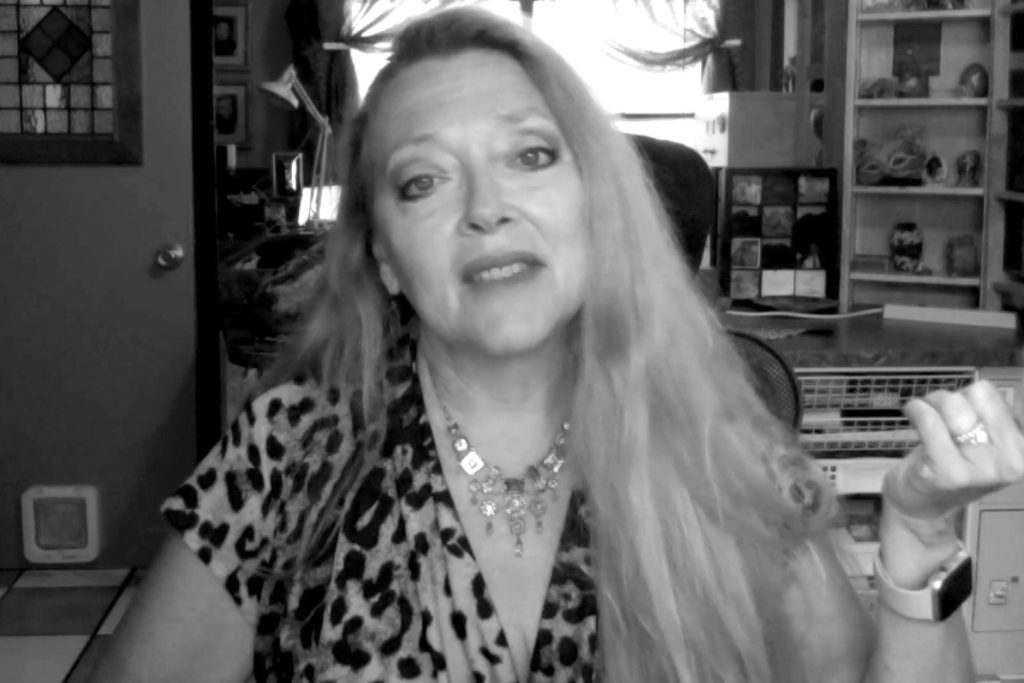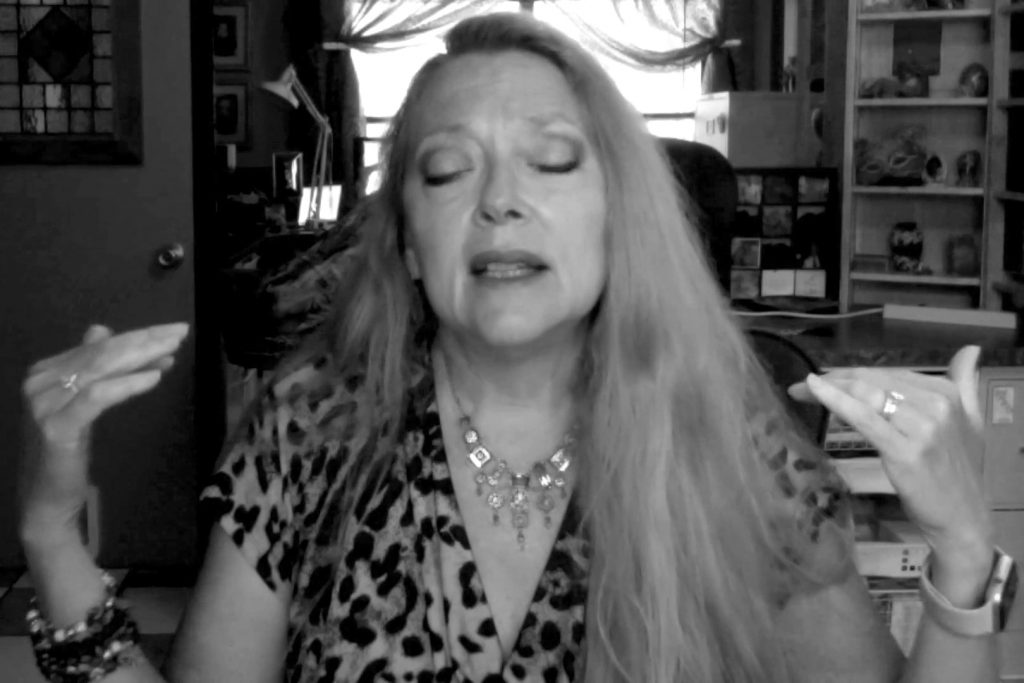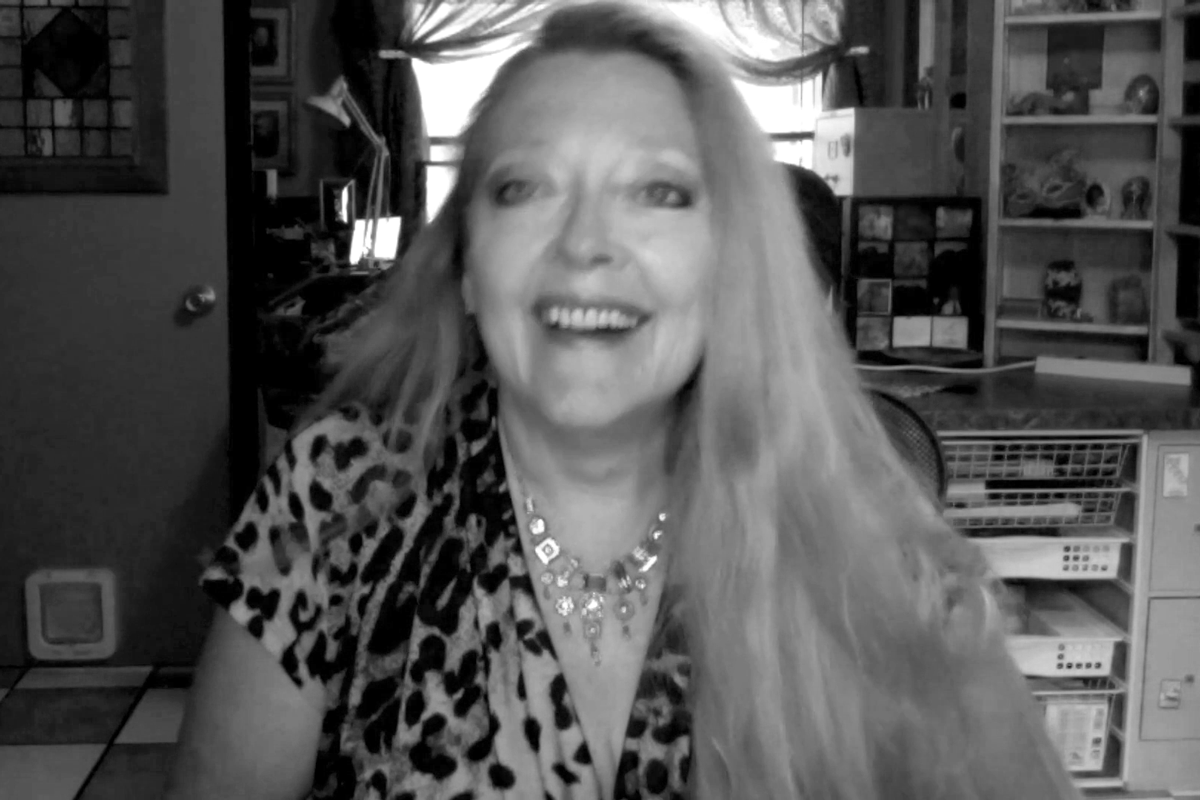The Tiger Queen
Published in Nuda:Terra
During our interview Carole Baskin describes a special encounter with a wild cat: “I locked eyes with this tiger and I could hear her say in my head – we do not belong in cages”. There is probably only a handful of people in the world that can tell a story about how they once talked telepathically with a tiger and Baskin is one of them. In the documentary Tiger King we get to meet her as an activist fighting for the end of private ownership of big cats, but also as the number one enemy of the show’s protagonist Joe Exotic and as the potential murderer of her late husband Don Lewis. While the TV-show did expose an entire new world for many of us, it told us less about the worldview of Carol Baskin herself. Considering how close she has lived with wild animals, I was especially curious about her thoughts and perspectives on the human-animal-relationship, and how this relates to the relationship between humans and the natural world.
Rebecca: From watching Tiger King I think everybody knows that you are all about cats, but what does the cat symbolize to you?
Carole: It is an interesting question… I don’t know if anyone has ever asked me that before. In the ether, I believe that we are all one. We choose how to manifest ourselves in the world, either as a person or an animal at different times and in different places. I really don’t see us as being so different from them. I guess I do not think of cats as being symbolic, so I am not sure if I can say what they symbolize other than being absolutely worthy everything I can give them. I will get up at 2 o’clock in the morning and race out in my pajamas because a wild cat has been hit by a car. I will take my daughter with me, we will crawl around in the bushes and get horrible cases of poison ivy just because it is a cat.

Rebecca: You have been working on a bill that would end private ownership of cats, what would you do if the bill would pass and you cannot have cats anymore?
Carole: So many people say that I’m so lucky to get to work with these big cats but nothing would make me happier than never seeing another exotic cat held against its will. That is the most horrible nightmare I get to see every day. When they can be free, I think they should be free. There was one time when I walked through the sanctuary all by myself and I passed by a tiger named Nene’s cage. Nobody else was around and as clear as a day I could hear Nene say ‘we don’t belong in cages’. It just stopped me dead in my tracks and I thought to myself that someone is probably fooling me, but there was nobody else around. Once again I could hear Nene say in my head ‘we do not belong in cages’. I knew that at a cognitive level, but it just struck me to hear it from her. I started crying because I realized that they recognize that they are imprisoned. I think maybe up until then I kind of bought into the idea that the cat has never been free so it does not know what it is missing.
People have a built-in desire to accumulate and to surround themselves with things that are of no value
While it is clear that Baskin has a great passion for cats, ‘The Mother Teresa of Cats’ also shared her thoughts on humans that were not so much in the spirit of the O.G. Mother Teresa. “I really believe that humans are a plague on this planet. People have a built-in desire to accumulate and to surround themselves with things that are of no value.” Although it is more than possible to relate to the anger Baskin expresses towards the effects of accumulating capital and things (I mean viva la revolución), it also made me reflect on the fact that we do exist and that advocating total annihilation of the human race does seem rather extreme. A question that lingers in the back of my head is therefore how Carole Baskin thinks of human existence in relation to the rest of the planet?
Carole: The very best thing that could happen to the animal world would be for all of us to leave the planet in advance. I think animals would be better off if people had not been evolved or created. There is no way that people can live on the same planet as animals because we break everything valuable to this planet (sighs loudly). I think that animals would have done a much better job being stewards on this planet than humans have ever been or could ever be. Animals just do not have that [human] character flaw, nature is perfectly balanced except when the human comes into the equation and screws up everything.
The inherently perfect nature in contrast to the inherent destructive force of humans? Baskin’s idea is a narrative that feels very up to date and appealing when living in an era by some called the Anthropocene. The word ‘anthropocene’ tells us that we (humanity) are accountable for the extermination of species, global warming, and above all, modifying nature more than ever before. Yet, creating a distinction between humans and nature, like the anthropocentric way of thinking implies, is not a unique phenomenon in our time nor to Carole Baskin. This distinction has been shaped in a specific context, more specifically, it has a long tradition within Western society where it has been manifested in a philosophy separating nature and culture from each other. So, what does this mean? Basically, when we in Western societies think of what nature is, we do not think of it as a result of human intervention and vice versa. So, when Baskin says that she thinks that humans are ‘a plague to this planet’ and that it ‘would have been better if we were not evolved’, it is because she does not think of humans, or human culture, as part of nature.
As an example, Western notions about nature translates into ideas differentiating human beings from animals. Philosopher Matthew Calarco writes for instance that the differences have been manifested in emphasizing human linguistic capacity. Thinkers such as Aristotle state that animals possess only phone and lack of logos, Descartes argues that animals lack ratio, while Heidegger reasons that a lack of animal logos indicates an essential lack of relational existence that is unique to human being-in-the-world, or dasein as Heidegger calls it. In a broad sense, our understanding of what animals are, is shaped by the impression of lacking abilities attributed to humans. This in turns creates a culture, or a system, of hierarchical dualism between humans and animals. One could argue that it is this train of thought that sustains our sense that it is okay to have animals but not humans captivated in Zoos or as pets (unless you are into the Furry community or something).
Nevertheless, while Carole Baskin does think of humans as the greatest evil on this planet she also acknowledges that the relationship between human beings and the natural world is much more complex than a dichotomy. In a way Baskin acknowledges an animal dasein, still she thinks that this type of being-in-the-world is different from the human type.

Rebecca: Do you think that animals are capable of having feelings in the same way as humans? To feel emotions such as love, envy or happiness?
Carole: Huh! If you ever seen two cats deciding who is going to get the last treat (laughs out loud) you know that they know all about envy and happiness, and of course, love. One of the things that bothers me the most is watching them sleep because I always wonder what they are remembering or imagining when they are running or whimpering. It makes me sad to think of what moment they are reliving, or imagining, because your imagination can be sometimes much more horrible than the truth. It is clear to me that they have a lot going on in their emotional repertoire. It is probably very different from our experience, but I also think we can’t understand the fullness or the richness of it.
Rebecca: Do you think that those feelings can exist in a mutual relationship between humans and animals?
Carole: I do think they can, but I think it is important to recognize the limitations. We expect them to know and love us the way we love them but it is different for them than what it is for us. We have to understand that what they are giving us is the best that they can give.
Rebecca: When you talk about the relationship as being limited, how do you imagine that animals perceive humans?
Carole: I think cats in the wild and cats that are born in cages have very different worldviews. In the wild they perceive us as the danger that we are. As far as cats in cages, they do not have a choice, they are in those cages and they cannot be free. All of the cats in our sanctuary are there because they were born in cages and they are just shadows of their wild counterparts.
They tolerate us because we bring them food and clean their cages. From that perspective they seem happy to see us, but I think it is only because we provide a service to them, it is not because they love us. I know that if I open that door they are going to walk away and never even turn around and look back. I love that they still have that sense of self sufficiency, that they are perfectly fine to just take off even if they would die. There are so many reasons why I cannot turn them loose, but I love the fact that if they would have the opportunity, they have that will or desire.
Continuing the conversation about the differences between the human and the animal world, Baskin shares her thoughts on how learning from animals can bridge the divide between existing in different worlds.
I know that if I open that door they are going to walk away and never even turn around and look back
Carole: I think that we can learn a lot from the animal world. What I have seen with a bobcat mother is that they will die protecting their cubs in order to continue on with their role in this beautiful web of life. By stark contrast, if a mother bobcat sees that a kitten is somewhat incapable of contributing to the greater good of their world, she will kill the kitten because she will not waste time in a kitten that won’t be able to carry on the gene pool in the next generation. She is fulfilling her role by making that very hard decision for humans, but for her it is not that difficult because she accepts her role and participates to the very best of her ability, whether it is something that would make her feel good or not. I think it says an awful a lot about their strengths.
Rebecca: Big cats and other animals, what can you tell me about their world? And what are your experiences from watching people interact with this world?
Carole: I think we come at it from very different perspectives, just watching people, I see this in my volunteers and my staff, they will feel like they have a very special relationship with a particular cat and they think that they are that cats favorite person in the entire world. But I know it is not true because I watch the cats with all different keepers and that cat does the same thing with half a dozen other people, depending on the cat. People often think they have a very special relationship with an animal, whereas the animal seem to have a very different reason maybe for giving that person the reason to believe it. The cats are happy because you bring them a treat, I do not think that they are happy because you are their favorite person in the world. Once they see that you do not have a treat, they are off to do something else. I have had cats treating me differently [in a positive way] but I cannot say they do it because of the same reasons that we do it. Their reasons are very different because of their ‘catness’ that they have decided to cloak themselves in during their time on this planet. I believe when each of us chooses how we are going back to this realm, we are choosing to take on that entire persona of what that animal or human is capable of seeing, feeling or experiencing and we can only see it from the body we have taken.

Though it may seem like Baskin gained new insights by hiking to, as author Michael Pollan puts it, “the Everest of psychedelics”, anthropologist Eduardo Viveiros de Castro’s work on Amerindian perspectivism provides knowledge of a cosmology similar to what Baskin notices – the cat acts as a cat because of its ‘catness’ that it can access by entering the body of a cat.
For Viveiros de Castro, perspectivism is the theory through which different bodies apprehend the same thing differently insofar as they apprehend different things through the same cultural logic. In this sense, perspectivism is different from for example relativism in which a single nature is apprehended differently by a variety of cultures. Instead it is multinaturalist in that a world that is dependent on bodily perspective is always different, but this difference is apprehended in the same (human) way by each type of being. The observant reader will notice that perspectivism presupposes that subjectivity is human, but in contrast to Western society subjectivity exists in all living beings. As Carole put it: “We are one, we are all really connected”.
In this interconnected socio-cosmic matrix, humans and non-humans are somehow identical, still it is possible to differentiate between all beings. Baskin and Viveiros de Castro both explain this in a similar manner – it is possible because of the concepts we call ‘soul’ or ‘spirit’ which are formally identical across species, while it is the body that establishes differences. During our interview, Baskin explains how she likes to exchange experiences with cats by entering their bodies.
The cats are happy because you bring them a treat, I do not think that they are happy because you are their favourite person in the world
Carole: I like to do something that is sometimes referred to as shape shifting, where I invite a cat into my body and say ‘you want to feel what it feels like to breathe the way I breathe, how my heart is beating so much slower than yours? Do you want to move around the property in my house?’ And by contrast asking to be inside of them, to feel what it is like to be on all four, extend those claws and feel the power that they have.
So not only does Baskin know how to talk to the cats she lives with, she also seems to have the ability to swap bodies with them. So, what is there to say about Carole Baskin’s thoughts on the relationship between humans and the natural world? One thing for sure is that her ideal world would be this one but without people and that her world exists within multiple worlds. But at least we get to live on the same planet (yet in different worlds). If only I could shape shift into Carole Baskin for a day.
| Words | Rebecca Gonzalez León |

